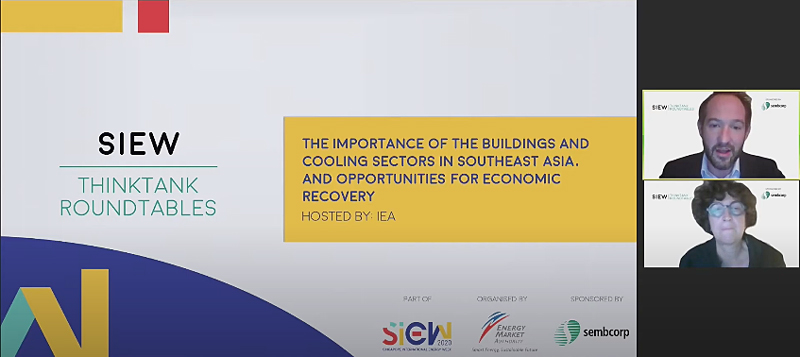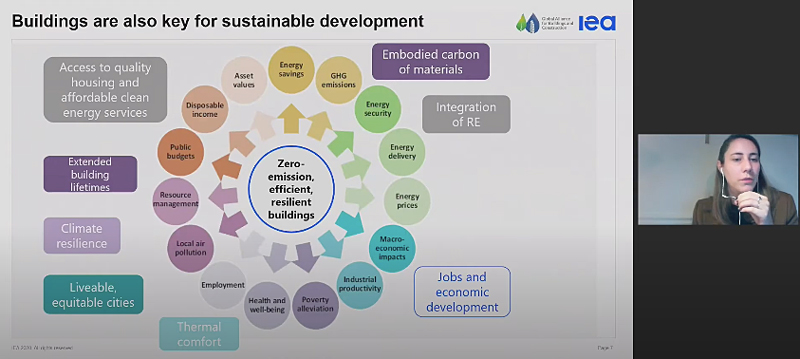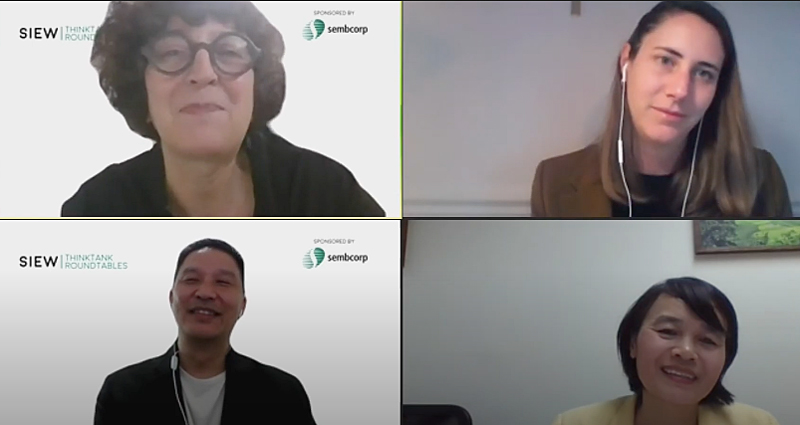IEA brought new perspectives to the policy and technology developments driving decarbonisation in the buildings and construction sector. By Lai Ming Kwan.

Hosted by the IEA, the Roundtable saw speakers discussing the importance of buildings and cooling sectors in Southeast Asia, and witnessed the launch of the Global Alliance for Buildings and Construction (GlobalABC) Regional Roadmap for Asia.
Martina Otto, Head of Cities Unit and GlobalABC Secretariat, UNEP, shared that the alliance brings together over 140 members, including 30 countries, to accelerate the pace and scale of action towards zero-carbon buildings.
Dr Nuki Agya Utama, Executive Director, ASEAN Centre for Energy stated that the region is the third fastest growing economy in Asia, with energy demand having increased by 70% since 2000. This growth is expected to continue with almost 40% of the energy consumed in the building sector.
Dr Utama said this has created huge opportunities in the market, especially in the efficiency improvements in cooling products, such as air conditioners and refrigeration, to reduce energy consumption. Many schemes are in place within the region to improve the efficiency of cooling equipment as well as to meet green building codes.

Maxine Jordan, Energy Policy Analyst, Energy Efficiency Division, International Energy Agency shared that IEA hoped the process of formulating the Regional Roadmaps and the Roadmaps itself will spark regional dialogue and collaboration; inspire concrete actions and national strategies for decarbonisation and economy recovery; as well as to highlight the need to fill information and ambition gaps.
“Given our hot and humid climate we foresee a continued need for cooling in our buildings. The challenge we face is how we best provide cooling in the most energy efficient manner to curb these emissions” said Noel Chin, Principal Manager at the Building and Construction Authority of Singapore.
Despite these limitations, Singapore still strived to have all new buildings be net zero-carbon from 2030 and for all buildings to operate at net zero-carbon by 2050.
Kim Thoa, PEEB Senior Program Officer, GIZ Office Vietnam, shared that with more buildings being constructed, Vietnam was keenly aware of the need for decarbonisation and was focusing on amending laws on environmental protection and construction.
Ian Hamilton, Associate Professor, UCL Energy Institute, University College London, also discussed the different policies on energy efficiency in response to COVID-19. He lauded Singapore’s efforts to co-create the Singapore Green Building Masterplan with industry and community and in the process, better understand public perception on how green buildings can play a part in economic recovery.

In closing, the panel reaffirmed the importance of energy usage in buildings and cooling. Many countries are aware of the importance of buildings and already implementing changes to their regulations and codes to achieve the target of Zero-Emission, Efficient and Resilient Buildings.
Follow us on Twitter (@SIEW_sg) to get the latest #SIEW2020 updates throughout the day!